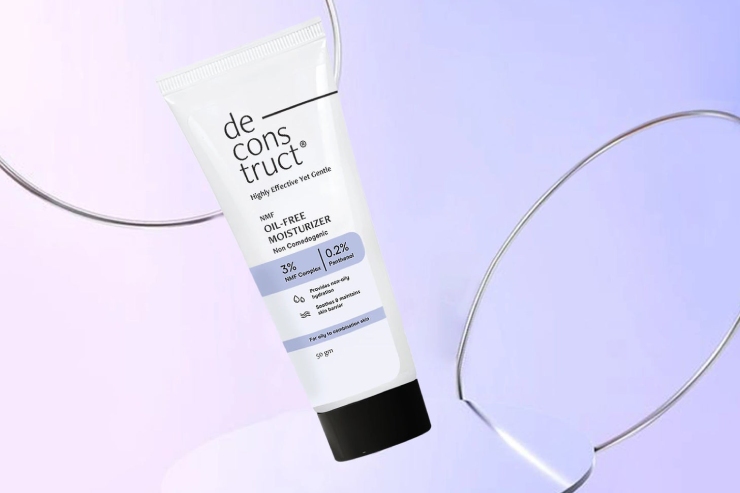If you have oily skin, the idea of applying moisturizer might feel counterintuitive. After all, why add more hydration when your skin already feels greasy? But here’s the truth: oily skin needs moisture just as much as any other skin type. In fact, skipping moisturizer can actually make things worse, triggering your skin to produce even more oil to compensate for the dehydration. The key lies in choosing the right ingredients—lightweight, non-comedogenic, and balancing components that hydrate without clogging pores. In this guide, we’ll explore the top ingredients to look for in moisturizers if you have oily skin, along with a few to avoid.
Why Oily Skin Still Needs Moisturizer
Oily skin is caused by overactive sebaceous glands, not necessarily by an abundance of hydration. When the skin becomes dry or stripped—often due to harsh cleansers or skipping moisturizer—it can respond by producing even more oil. This creates a vicious cycle of dehydration and excess sebum. Moisturizers for Oily Skin are specifically formulated to break this cycle by balancing the skin’s water levels without adding extra grease. Using the right moisturizers for oily skin helps reduce oiliness over time and supports a healthy skin barrier. The key is to choose ingredients that hydrate effectively without causing breakouts or feeling heavy.

Top Ingredients to Look for in Moisturizers for Oily Skin
3% NMF (Natural Moisturizing Factors) Complex
Natural Moisturizing Factors (NMF) are a group of molecules naturally found in the skin that help retain moisture. These include amino acids, lactic acid, urea, and peptides. A moisturizer containing a 3% NMF complex mimics your skin’s own hydration system, delivering moisture exactly where it’s needed—without a greasy residue. This helps reinforce the skin barrier while keeping the skin feeling fresh and hydrated.

0.2% Panthenol
Panthenol, also known as Provitamin B5, is a humectant that attracts water into the skin while also soothing and calming irritation. At a concentration of 0.2%, it provides effective hydration without being too heavy. It also supports the skin’s natural repair process, which is particularly helpful if your oily skin is also acne-prone or sensitive.
Niacinamide
Niacinamide (Vitamin B3) is a multitasking superstar in oily skin care. It helps regulate sebum production, minimize the appearance of pores, improve skin texture, and even tone. It also strengthens the skin barrier and reduces inflammation, making it ideal for those who experience acne alongside oiliness. A moisturizer with 2–5% niacinamide is typically well-tolerated and effective for oily skin types.

Hyaluronic Acid
Hyaluronic acid is a powerful humectant that can hold up to 1000 times its weight in water. It draws moisture from the air into the skin, providing deep hydration without clogging pores or adding shine. For oily skin, look for moisturizers containing low-molecular-weight hyaluronic acid, which penetrates deeper and feels feather-light on the skin.
Centella Asiatica
Centella Asiatica, also known as Cica or Gotu Kola, is a soothing botanical ingredient that calms inflammation, heals damaged skin, and supports collagen production. It’s particularly useful for oily and acne-prone skin because it reduces redness and irritation while promoting barrier repair. A moisturizer with Centella can help keep your skin calm, balanced, and less reactive.
Glycerin
Glycerin is a classic and highly effective humectant that draws water into the skin and keeps it hydrated. It’s lightweight, non-comedogenic, and plays well with other ingredients. Glycerin also enhances the skin’s natural barrier function, which is crucial for managing oil production and preventing breakouts.
Ingredients to Avoid in Oily Skin Moisturizers
Not all moisturizing ingredients are suitable for oily or acne-prone skin. Some can clog pores or create a heavy, greasy finish. Here are a few to avoid:

- Mineral Oil & Petrolatum: These occlusive agents can be too heavy for oily skin, potentially leading to breakouts.
- Coconut Oil: While moisturizing, it’s highly comedogenic and can clog pores.
- Lanolin: Often used in thick creams, it can irritate or clog pores in sensitive, oily skin.
- Heavy Silicones (e.g., Dimethicone in high concentrations): While not inherently bad, some silicones can trap debris and exacerbate oiliness if overused.
- Fragrances and Essential Oils: These can irritate sensitive skin and trigger more oil production.
Conclusion
Moisturizing oily skin isn’t about adding more oil—it’s about balancing hydration and strengthening the skin barrier. By choosing moisturizers with lightweight, non-comedogenic ingredients like Niacinamide, Hyaluronic Acid, Panthenol, and NMFs, you can keep your skin hydrated, calm, and shine-free. Be mindful of what you avoid as well—skip heavy occlusives and irritating additives that can throw your skin off balance. With the right formula, your moisturizer can become a powerful ally in your oily skin routine.



